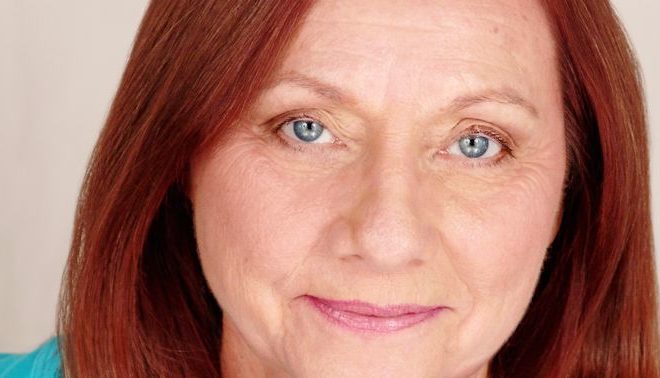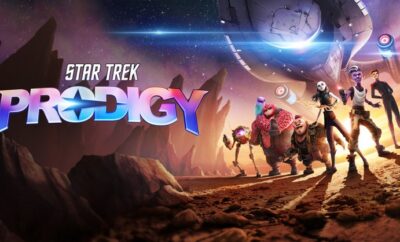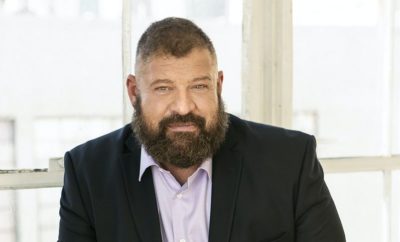 Bob Newey
Bob Newey
Interviews
Dale Soules – Orange is the New Black
By: Jamie Steinberg
Q) What are the recent projects that you are working on?
A) Well, I’ve been working on a lot of things. I just finished doing a play at Irish Reparatory by a very brilliant writer named Marina Carr. She’s kind of a rockstar in Ireland. She’s just a wonderful, wonderful writer and I’ve been following her for years, hoping to get to do a piece of hers. That project was called Woman and Scarecrow. It was dealing with a woman who was in her 50’s and dying while coming to terms with her new life, as one does when they get closer to the end. She has a personified Id and another character, which we see as the audience who is her argumentative line – the part she hasn’t lived out. The part that says, “Why didn’t you do this?! We could have done that!” Then, there are two other characters, which are in the real world – one is her husband referred to as “him” and the other is her Irish aunt named Auntie Ah who brings Ireland into the room. She’s just a fabulous character and she’s the one I got to play.
Q) How was Frieda on “Orange is the New Black” originally described to you?
A) [laughs] Actually, I looked that up and found the original casting call breakdown. “Frieda: female, Caucasian in 60’s to 70’s, grandmotherly and gray with only a faded tattoo peeking out of her shirt to suggest a racier past. Part of ‘The Golden Girls.’ Reoccurring.” As you can see, it ended up being something quite different.
Q) Then the Southern accent was something you added on your own.
A) Yes, it was. It was something I added, and I had just come off of doing Hands on a Hard Body on Broadway, which took place in Texas. As the seasons went on and they kept me on “Orange is the New Black,” they decided I was from Arkansas. So, I chose to do the accent in the audition – very, very slight. Slighter than it now appears in the series, I think. A funny story, in regard to the beginning of this, when I first got the call to go in for the audition I hadn’t seen “Orange is the New Black.” It was in the beginning of the second season, so my agent said, “We have an audition for you, ‘Orange is the New Black.’” And in the world of “remain silent or be thought a fool or speak up and remove all doubt,” I thought, “Why are they sending me for some fashion thing?!” [laughs] Luckily, I didn’t say that and reveal my ignorance, so I dutifully wrote it down and then went to the computer and looked it up on YouTube. It had been out for a full season, so I got to see the first episode. I had it and I thought, “For TV, I normally would not use it.” I had the wig already though and because it said “grandmotherly and gray” I thought perhaps I had better use it. I put the wig on, went in and did the audition. I asked if I could read for another role, which was Jimmy (a woman who has dementia). I didn’t get that one. I got Frieda. So, when I heard that I had it I asked my agent to call the costume and makeup people to see if they wanted me to come in with the wig. They said they didn’t know yet. I came in with the wig, but they decided to just use my hair.
Q) How do you get into character?
A) In this particular case, my dad had spent time in prison and I’ve done plays…I did the play Getting Out, which takes place in prison and is about someone who spent most of their life in incarcerated. I perform all over the country in prisons. Not only – but as part of a one-person tour in the 80’s. I made sure that I was doing it in prisons.
Q) What have you found that continues to challenge you about this role?
A) It’s very much like real life – you don’t know what is going to happen next. So, you don’t even know if you’re telling the truth at any given moment. For instance, early on (as you may or may not remember) I removed a very important appendage from my husband. Meaning, I cut off his penis. When I read that in the script, I was a little shocked. [laughs] They were shooting the show and it was my second or third episode and they were shooting in my neighborhood in Park Slope. I saw that they were shooting in my neighborhood and I found out where they were having lunch. I went over there and spoke to our wonderful producer Lisa Vinnecour and asked if it would be alright if I asked the author if I really did this or was just pumping up the jam to frighten the Latina girl that I’m speaking to about why I got into prison. So, I went and spoke to the author and she said, “You really did it.” So, now my job as an actor is to justify that somehow. So, I write a backstory for myself for why did I do that. What did he do to make me actually do that? Then, the next episode that you get tells you that whole backstory you wrote can be thrown out in the garbage because that’s not it at all. [laughs] So, it’s always a very interesting and difficult challenge – not knowing.
Q) This season Frieda has spent a lot of time with Crazy Eyes. Talk about working with costar Uzo Aduba.
A) She is really, really wonderful to work with her. She completely commits to whatever her truth or reality is in a given scene. She’s very giving as an actor. She listens. She is wonderful to work with, overall. I would say her honesty and her commitment are the two greatest assets that I felt working with her. And her generosity! She’s very generous as an actress.
Q) Is there someone you haven’t worked with yet that you hope to share a scene with in the future?
A) [laughs] Honestly, the cast is so stellar and so wonderful. They support each other outside of “Orange is the New Black” as well. We are extremely supportive of each other because we respect each other and each other’s work. It’s a very work-woman like set. So, there is no one on that set that I have encountered so far that I would not like to do a scene with. I don’t mean to sound like a Pollyanna about that, but it is the truth. There is no one that I haven’t worked with that I wouldn’t like to work with. I would like to work with anyone that I haven’t yet.
Q) What were some of your most memorable moments from filming Season 6 of “Orange is the New Black?”
A) I would say the dog Christmas party was very memorable. I’m serious. [laughs] We had a Christmas party, but it was a dog Christmas party. So many people have dogs that it was absolutely one of the most fun parties that I have ever been to in my life because everyone was concerned with their animals and not worrying about being socially ept. [laughs] It was fantastic! I took about fifty pictures, I think. It was just wonderful. It was, honestly, extremely memorable. It was also very good for letting off steam. It is a comedy and a drama. There are moments where it can get very, very serious. In the first episode of the season I’m just trying to stay alive, shall we say. After scenes like that or lying in a puddle of blood for a couple of hours something like a dog Christmas party can really lift your spirits. [laughs] Because you do have to psychologically go where you’re required to go – whether it is in the end going to elicit the juxtaposition of that is going to illicit laughs or not while you’re doing it that’s not where you are. I would say also the magic was kind of memorable for me because forty years ago I did a show called The Magic Show with a very famous magician named Doug Henning. I had to learn how to be a magician’s assistant, which was a whole other profession. I had to do that in four weeks – the same period of time we do the show. Some of the grand illusions that we did on that show were really death defying. If you make a mistake, you’re not going to come out of it alive. So, when I saw a little bit of magic was involved in the first episode I was excited by that. I got to work with a close-up magician. That was memorable. Also, I always love working with Kate Mulgrew.
Q) What have you personally taken away from your time working on the show?
A) I had a woman come up to me at Lincoln Center two years ago while I was doing Shows For Days with Patti LuPone. I was sitting outside afterwards and a woman came up to me and said, “You know, I have a sister who has been incarcerated. I’ve never, ever been able to understand why you would take that chance for that to happen – what did she do. Honestly, not to get overly serious about this, watching ‘Orange is the New Black’ has shown me how thin that line is between doing something that is illegal and getting caught at it – how thin that line is being on one side or the other of the law and how hard it is when you get out of prison to reestablish yourself in a different way than when you went in.” It happens over and over, that kind of response from the audience. And that’s wonderful! It’s like, “Ah! Now, I really see it’s not very different than me.” That’s actually quite like the response that Piper Kerman had in the first place. She thought she didn’t belong there at all and as time went on she realized she was really not very different. There was a very early interview where they were speaking with Jenji Kohan who said that Piper was her Trojan horse because she was upper-middle class, white and blonde. A certain audience would follow her into prison and once she was in there she was then open to looking at all the other stories that they might not otherwise see. I think that’s a big part of what happened. Outside of the humor – which is wonderful and funny a lot of social issues are looked at and dealt with – I think it’s really had its effect in this society and that’s the thing that I love. That and the diversity! A number of women. An awful lot of things I’ll take with me. Hopefully, not right away…I take the fact that it has reached the audience in a way that has changed their minds. It’s shown them something that they didn’t know before – a different person than they would ever run into or hear that depth of a story.
Q) What would you like to say to everyone who is a fan and supporter of you and the work that you do?
A) I love you! [laughs] I thank you. The theatre saved my life. Story telling saved my life. So, the fact that I have an audience that likes the way that I do what I do – I’m eternally grateful for that. I really am. It’s a conversation. It’s a two-way street. Whether it is a live conversation (like with theatre) or a much more accessible conversation like this where a lot more people get to see it, it is still a conversation. I meet people on the train where they say, “Oh my God! Oh my God! You like my aunt! I never thought I’d see somebody who was like my aunt because you understand what happened to her.” Now, they do! So, that’s the most rewarding thing for me.





You must be logged in to post a comment Login